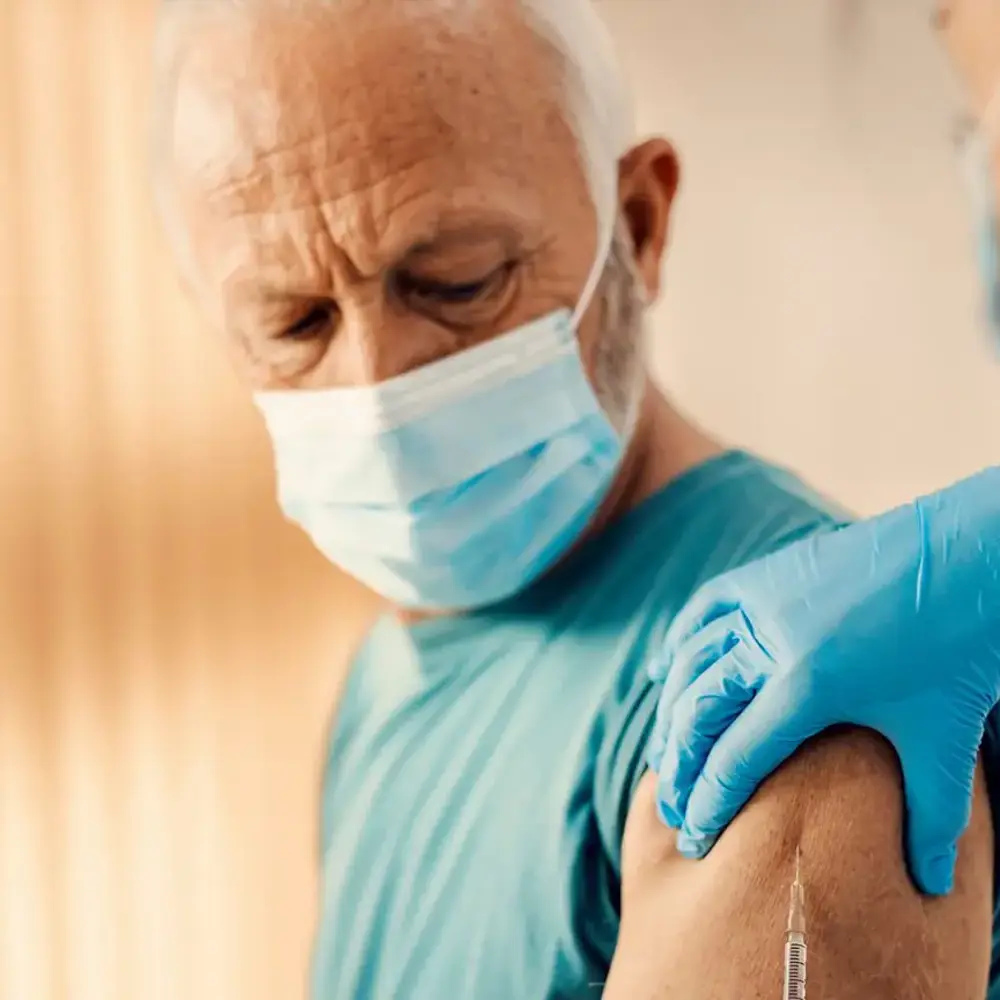Vaccinations are important in safeguarding the health of older adults, preventing them from potential infections and diseases such as the flu, shingles, and complications arising from COVID-19.
Vaccinations can be especially important for those who suffer from pre-existing long-term medical conditions such as diabetes, COPD or heart failure.
The information provided here is designed for those helping to support or care for an older adult, such as a parent, spouse, or family member, to assist them in understanding the importance of vaccinations and how to organise them.
As we grow older, our immune system can become less effective, making us more susceptible to infections. At the same time, long-term conditions can make us more vulnerable to the effects of infections. Consequently, preventing infections wherever possible can help to reduce avoidable illness or suffering.
Disclaimer: These guides are not a substitute for medical advice – always seek professional help. Remember, healthcare professionals will not share information about a patient unless they have been permitted to do so.
How This Information Can Help You
Organising Winter Flu Vaccinations
Discover why it’s critical to stay ahead of the flu season and protect those most vulnerable in our families.
Check Pneumococcal Vaccine Requirements
This is a once only injection which can be given at any time of year. Certain conditions such as diabetes are recognised to increase the risk of developing pneumococcal infections and complications of influenza such as pneumonia or bronchitis
Frequently Asked Questions
Common questions and answers about vaccinations, how they can be beneficial, and ensuring they are fully informed about the necessary steps for vaccination.
Understanding Shingles Vaccinations
Gain insights into shingles and its potential severity in older adults. Our guide explains eligibility for the shingles vaccine, its effectiveness, and how to ensure your loved one receives it promptly.
Guides to Vaccinations
Frequently Asked Questions about Vaccines
Browse our FAQ section for reliable information, guidance, and expert vaccine insights, helping you make informed health decisions.




